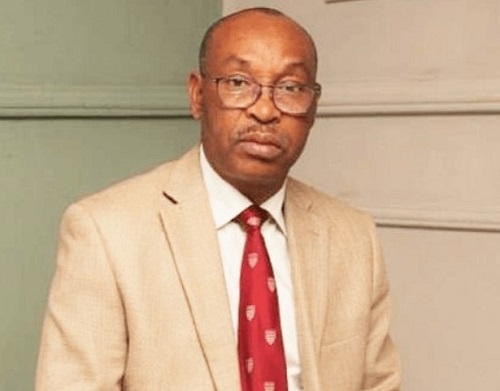Dr. Ogbanaya Orji, Executive Secretary, NEITI
…Nigeria lost 13.5 million barrels of crude oil valued at $3.3 billion to theft and sabotage.
-Felix Douglas
The Executive Secretary of Nigeria Extractive Industry Transparency Imitative (NEITI), Dr. Ogbanaya Orji, emphasized at the Nigeria Association of Energy Correspondents (NAEC), annual conference that Nigeria’s energy future will not be defined by the size of its reserves or production capacity, but by how transparently and prudently the country manages its natural resource wealth, revenues, data, contracts, and decisions that shape national destiny.
Dr. Orji said the era of secrecy in resource governance is over. The global energy transition towards cleaner fuels, gas optimisation, and renewable energy requires openness, responsibility, and innovation at every stage of the value chain.
He spoke on NEITI, philosophy which is clear and uncompromising that “Data builds trust, and trust drives investment.”
Transparency is not a bureaucratic exercise; it is an economic imperative and attracts capital, technology, and partnerships. “Our latest NEITI industry reports make this truth evident.”
Dr. Orji said NEITI 2021–2022 Oil and Gas Industry Reports revealed that Nigeria earned $23.04 billion in 2021 and $23.05 billion in 2022 from the sector. However, it also identified outstanding remittances of ₦1.5 trillion owed to the Federation by some companies and government agencies — funds that could significantly support energy infrastructure, education, and healthcare if recovered.
NEITI findings also exposed the devastating cost of poor accountability. In 2022 alone, Nigeria lost 13.5 million barrels of crude oil valued at $3.3 billion to theft and sabotage. That is revenue that could have financed a full year of the federal health budget or provided energy access to millions of households.
These losses are not just economic — they represent broken trust, institutional weaknesses, and missed opportunities for national progress. This is precisely why transparency and accountability are not optional. They are existential.
Dr. Orji was of the view that over the past decade, NEITI has evolved from an auditing agency to a governance reform institution.
NEITI has institutionalized regular audits of oil, gas, and solid minerals sectors, tracking production, payments, and remediation. The transparency agency has developed Nigeria’s Beneficial Ownership Register, unmasking the true owners of over 4,800 extractive assets, and helping government combat corruption and illicit financial flows. Launched the NEITI Data Centre — a national open-data infrastructure that provides real-time public access to industry information.
NEITI has strengthened partnerships with NUPRC, NMDPRA, and NCDMB to promote transparency in licensing, metering, and host community trust management; and introduced energy transition and climate accountability framework to ensure that Nigeria’s shift to cleaner energy is transparent, inclusive and fair.
According to Dr. Orji, these are not ceremonial milestones. They are practical governance instruments designed to make transparency the DNA of Nigeria’s extractive sector
The NEITI helmsman called the media critical partners and watchdogs of transparency.
“Your pen, your microphone, your analysis — these are powerful accountability tools that can prevent corruption before it happens.”
He enjoined journalists to use NEITI’s data to hold both government and industry accountable, investigate how extractive revenues translate into roads, schools, hospitals and power.
The media should simplify complex audit findings for citizens to understand and engage amplifying the voices of host communities and advocate for fairness in energy governance by keeping transparency and accountability at the centre of national discourse.
As a strategic partner, NAEC’s role is indispensable. “When journalists report with depth, integrity, and factual accuracy, they become the bridge between data and democracy.”
Nigeria positions gas as its transition fuel and renewable energy as its future, governance must keep pace with innovation. “Our energy future must rest on verifiable data, open contracts, measurable emissions, and accountable institutions.”
“NEITI envisions a sector where every dollar is traceable, every contract is public, every decision is transparent, and every Nigerian citizen can see how natural resources translate into national prosperity.”


Comment here